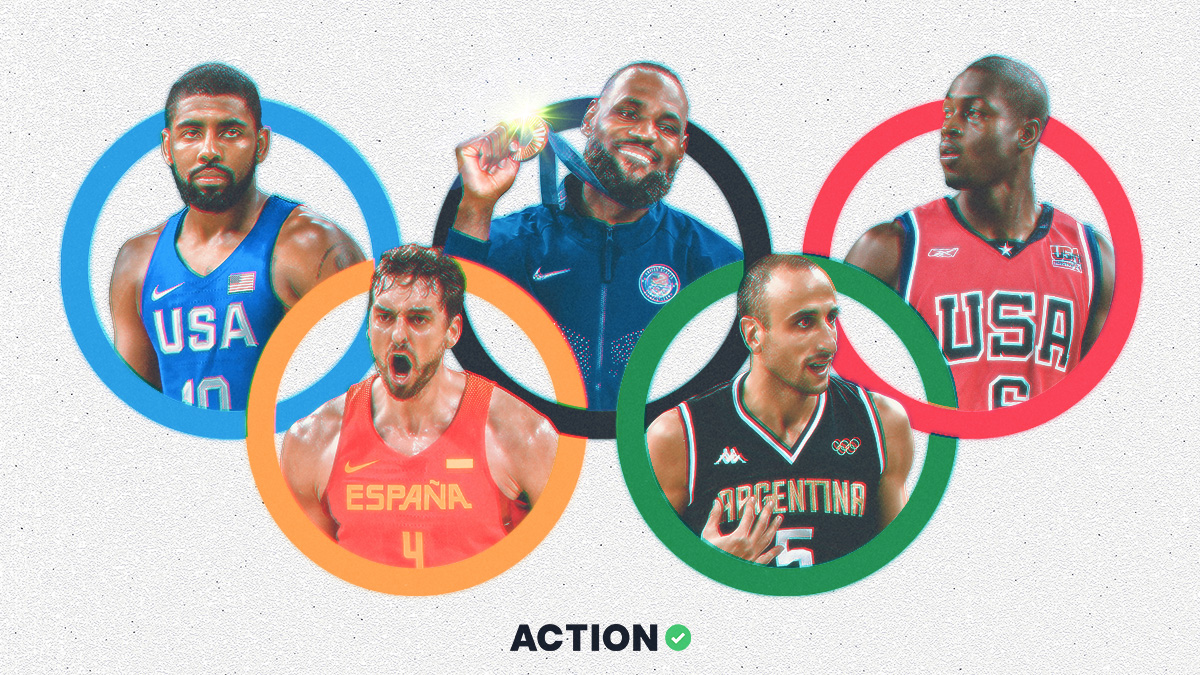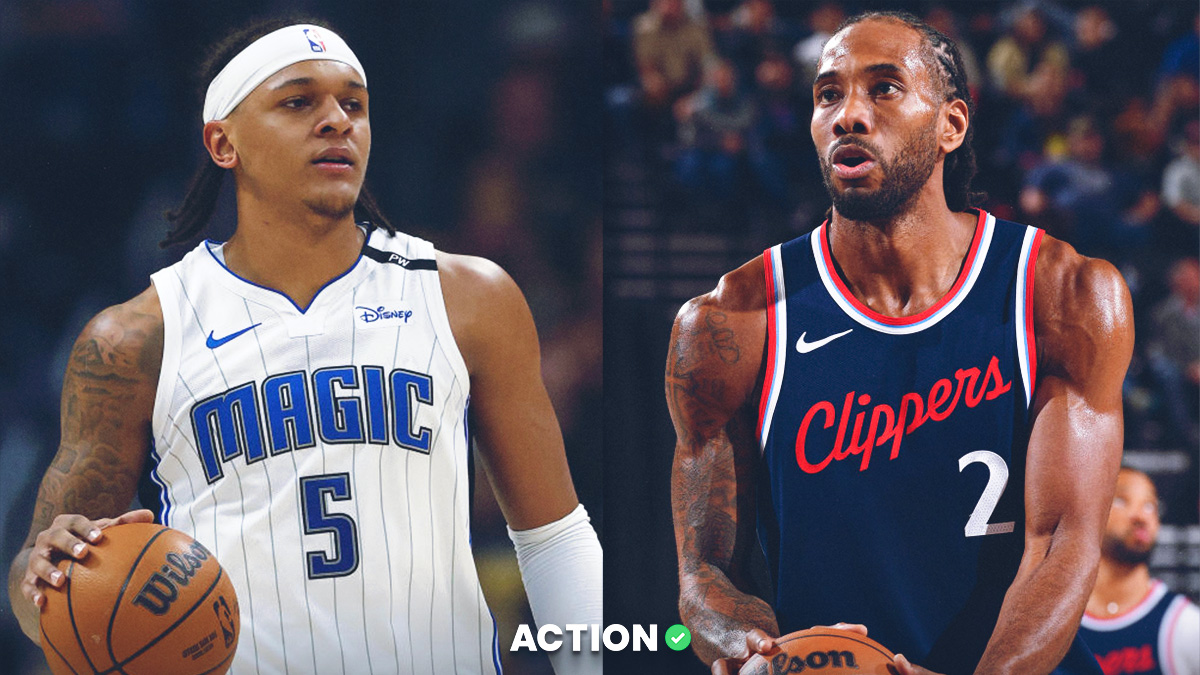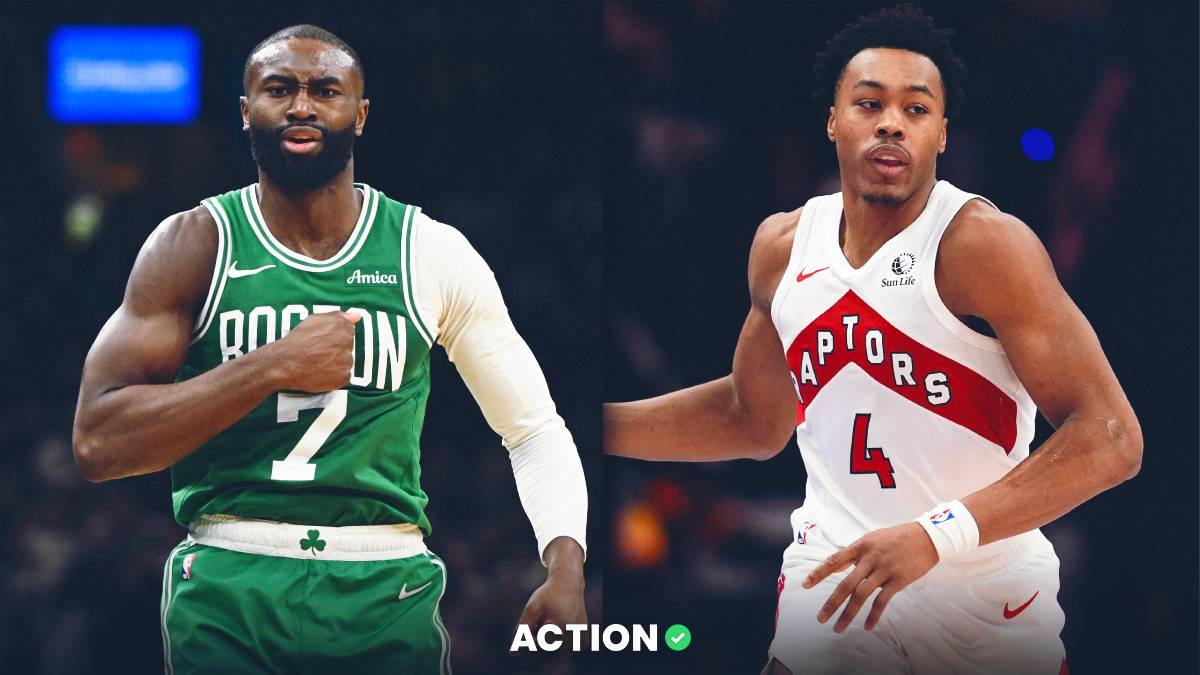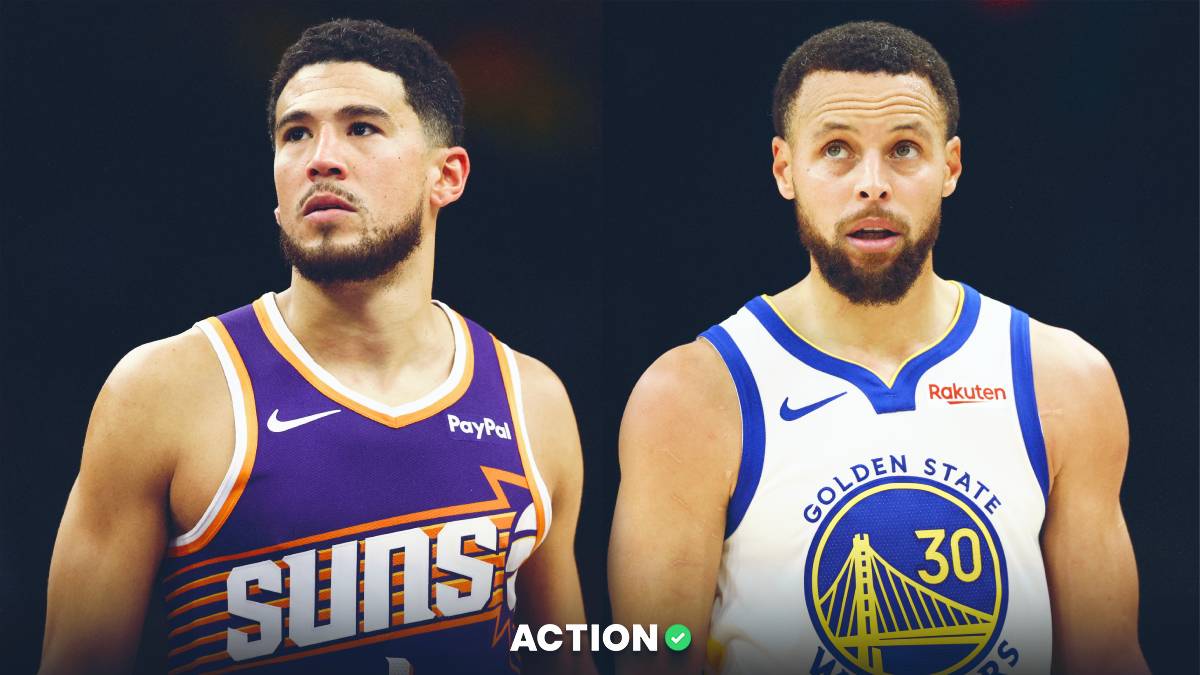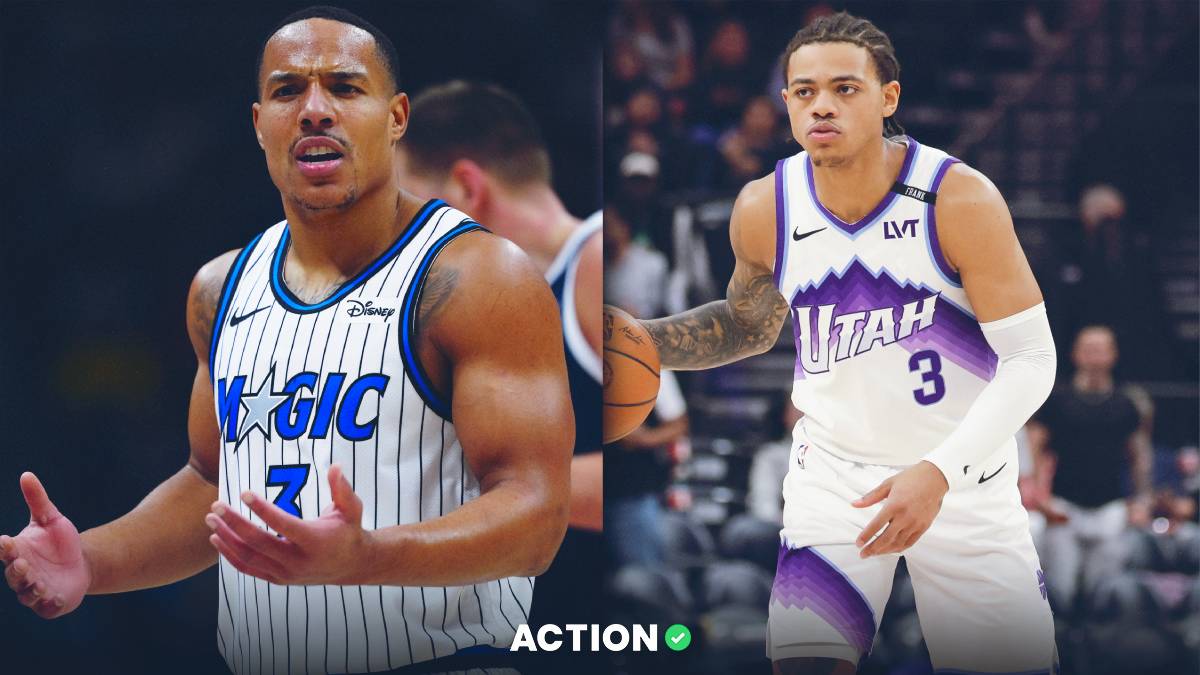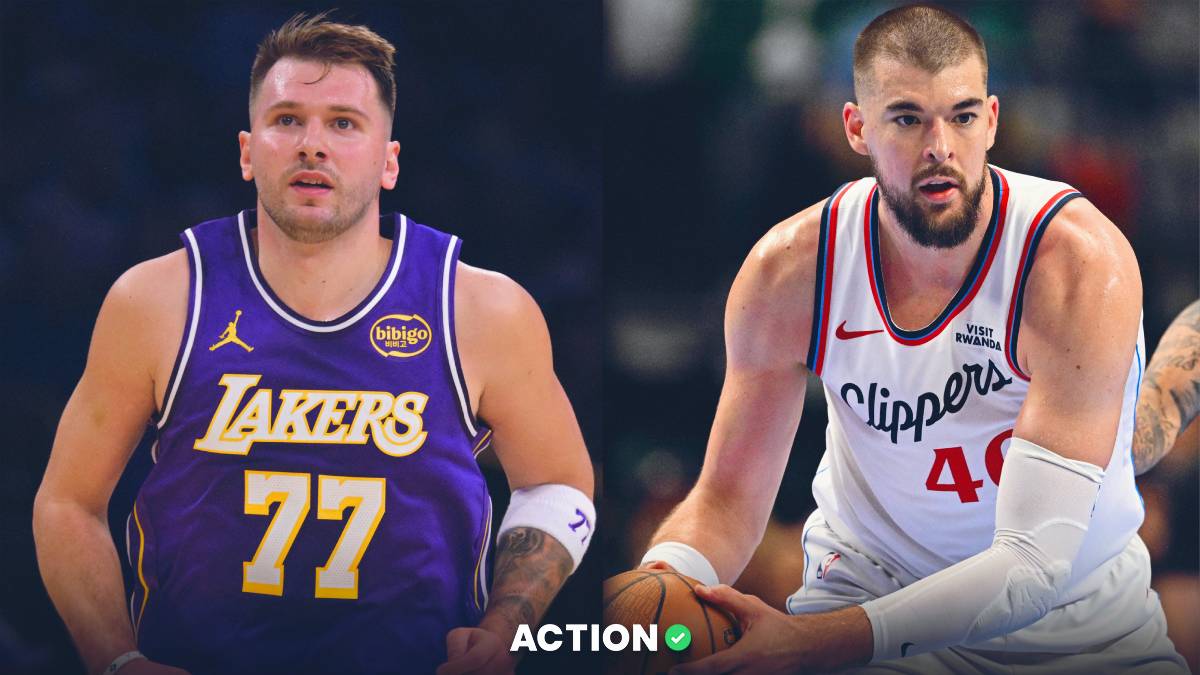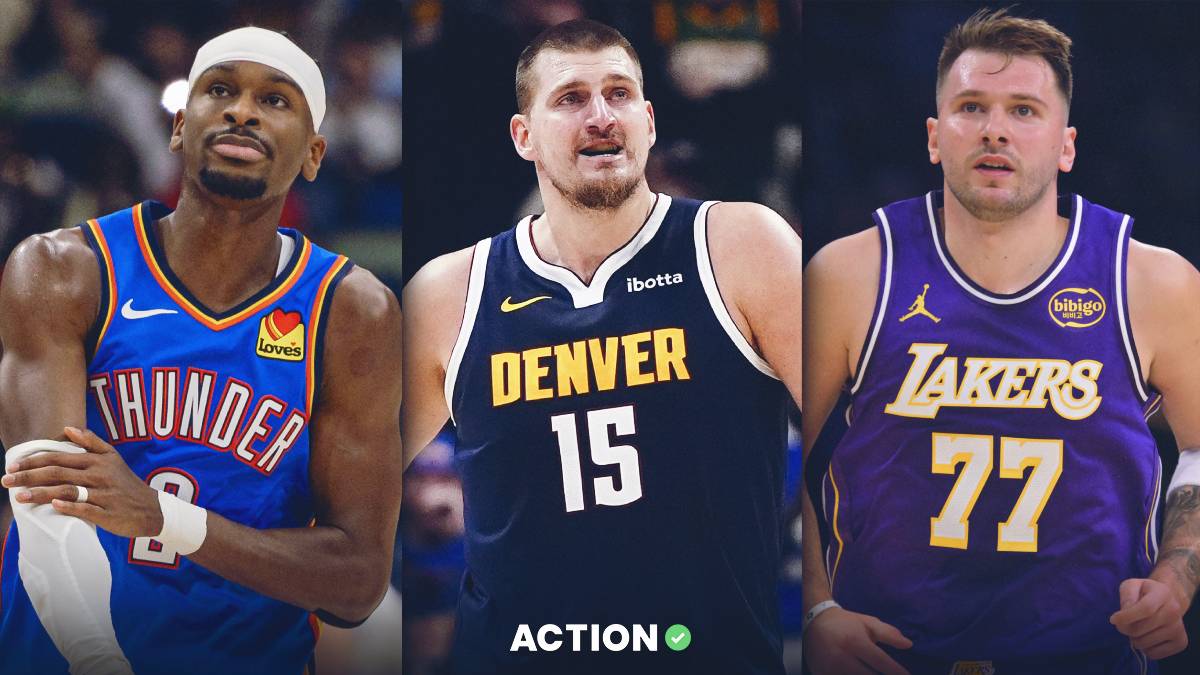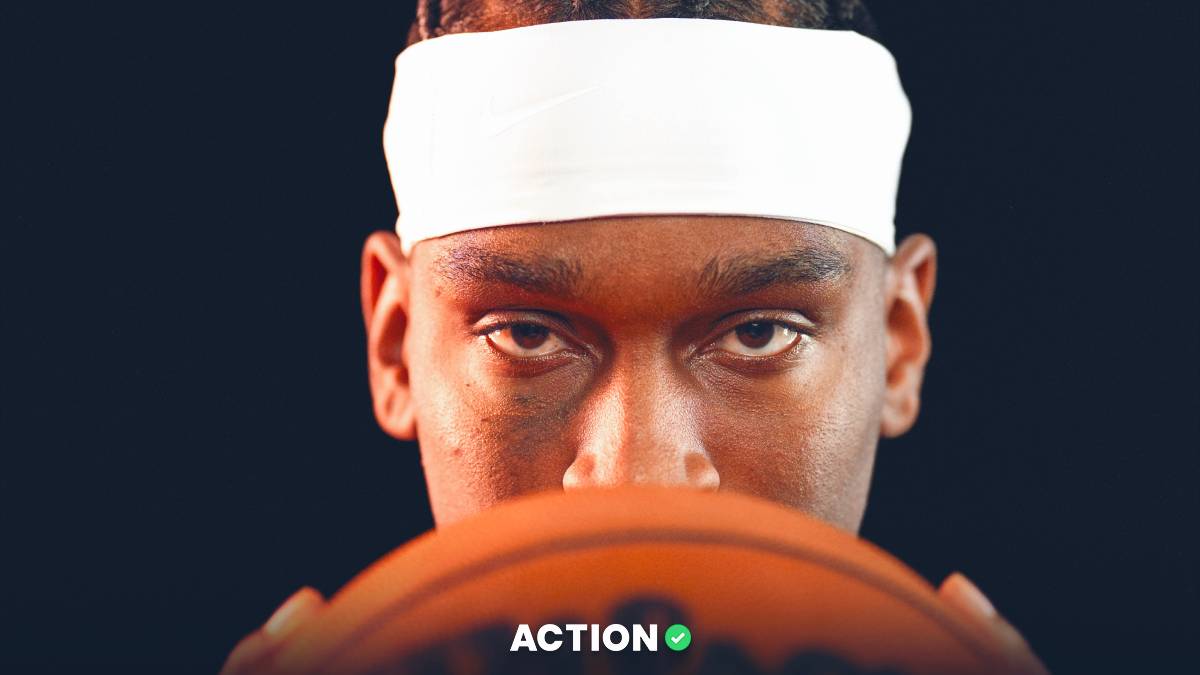We always talk about the Olympic Bump, but does it actually exist?
The Olympic Bump is a theory that NBA players make a leap after competing in the Summer Games – we’ll have some examples.
While being on top of our FIBA World Cup, Olympic Qualifier and Olympic basketball coverage over the last year plus, I've often wondered if this theory held true. We've watched a number of players participate in the Summer Games and assume the experience would elevate them when arriving back to play in the NBA.
But do NBA players really improve after a summer playing for gold?
Do NBA Players Really Benefit After Playing In The Olympics?
We'll go back 20 years for the sake of not boring you to death.
Here are some of the big jumps we've seen over the last 20 years of players from players following Olympic performances.
F LeBron James, Ages 19, 23 and 27 (USA) — 2004, 2008 and 2012 Olympics
- Sophomore Surge: James made a huge jump after the disastrous '04 Olympics. He went from averaging about 21/5/6 as a rookie to 27/7/7 as a sophomore and made his first All-Star Game. Though, he only averaged 5.4 points in the 2004 Olympics, where he logged just 11.5 minutes per contest — he was the team's ninth man.
- 2008-09 Scoring & Efficiency: LeBron won his first MVP the year after the Redeem Team won Gold, despite his counting stats declining. His efficiency improved across the board.
- 2012-13 Scoring & Efficiency: James had a career-best efficient year, shooting 56.5 percent from the field, shooting 40 percent from three for the first time, and leading the Heat to a second straight title. James' two best true shooting percentages (64 and 64.9 percent) came in 12-13 and 13-14.
- Team Success: In 2004-05, Cleveland improved by seven wins, and jumped another eight the following year to become a 50-win playoff team. In 2008-09, the Cavs jumped from 45 wins to 66 and got to the Eastern Conference Finals after losing to the Celtics in Game 7 of the semifinals the previous season. And in 2012-13, James and the Heat won a second consecutive NBA title.
G Manu Ginóbili, Age 27 (Argentina) — 2004 Olympics
- Scoring: Points per game increased from 12.8 to 16.0, then a career-high.
- Efficiency: Shot career-best 47/38/80 shooting splits, well above his average the previous two seasons, and held a career-best 60.9 True Shooting Percentage. This led to his first All-Star appearance.
- Team Success, Playoff Arrival: The San Antonio Spurs won the 2005 NBA Title after losing in the semis in 2004. Ginobili averaged 20.8 points in the post-season, a personal best and second only to Tim Duncan on the Spurs. He also shot 50.7 percent from the field and 43.8 percent from three in the playoffs — both career-highs.
C/F Pau Gasol, Age 28 (Spain) — 2008 Olympics
- Biggest Improvements: Gasol's rebounding jumped from 8.4 to 9.6 boards per contest in what was his first full season as a Los Angeles Laker. Gasol entered his peak this season with a 19-9-3 line and his first All-Star appearance since 2006.
- Team Success: In the playoffs, Gasol averaged 16.2 points, 9.6 rebounds and 2.2 assists while shooting 58 percent. He averaged nearly 18.6 points and 9.2 boards in the NBA Finals, where he helped the Lakers beat the Orlando Magic in five to win the first of back-to-back titles.
- Advanced numbers: Gasol's career-best on-court plus-minus was in 08-09 at +9.3. Gasol also had a 61.7 percent true shooting tally, the best of his career by far. Additionally, the year sparked his second-best win shares per 48 number at .223, and the first of three straight years over .200.
G Dwyane Wade, Ages 22 and 26 (USA) — 2004 and 2008 Olympics
- 2004-05 Breakout: Wade actually played the seventh most minutes in the 2004 Team USA squad — 51 more total minutes than LeBron James, who didn't even get to 100 across the eight games. Wade made his first All-Star team in 2004-05, elevating from around 16/4/4 to 24/7/5 points, assists and rebounds. He also made All-NBA Second Team, All-Defensive Second Team and was top 10 in MVP voting while starring on a Heat team that reached Game 7 of the Eastern Conference Finals — they won the title the following season.
- 2008-09 Re-introduction: Wade had a down 2007-08 and the Heat were 15-67 — their worst team ever. Wade finished third in MVP voting in 2008-09 — his best ever placement — averaged a league-best 30.2 points, the only scoring title or such average of his career, and made his first First Team All-NBA while headlining a Heat team that improved by 28 wins.
G Kyrie Irving, Age 24 (USA) — 2016 Olympics
- A New Stratosphere: If you ever considered Kyrie Irving a superstar, 2016 is the reason why. After helping the Cavs win their first title, he won gold that summer, and then had a career best season in 2016-17. Irving jumped from 19.6 and 4.7 points and assists per game to 25.2 and 5.8 assists and returned to the All-Star Game after a year away. He also shot a then career-best 47 percent from the field and shot 40 percent from three and 90 percent on free throws, both personal firsts.
- Team Success: The Cavs returned to the NBA Finals, though they lost to a buzzsaw in Golden State, who added Kevin Durant that summer.
Honorable Mentions:
- Kevin Durant had then-career bests in true shooting, field goal and free throw percentages in 2012-13. It was his first 50/40/90 season.
- Carmelo Anthony introduced us to "Olympic Melo" across multiple runs with Team USA, most notably, he came back from 2012 and won a scoring title, was third in MVP voting and led the Knicks to their first playoff series win since 2000.
- Amar'e Stoudemire had his best scoring season in 2004-05 and is worth a mention for reaching All-Star and All-NBA for the first time in his career, though, Steve Nash also helped. The boom was short-lived because he was sidelined by injuries in 2005-06.
Notable Post-Olympic Regressions
Here were players who fell off shortly after a lengthy Olympic run.
G Kobe Bryant, Age 35 (USA) — 2012 Olympics
- The Fall Off: Bryant still hovered around 27/6/6 but was named All-NBA for the last time in his career. Unfortunately, he ruptured his Achilles in April of 2013, and he was never truly Kobe for a full season again. The Lakers also got swept in the playoffs that season — Bryant didn't win a playoff game again in his career following 2012. He played six games in the 2013-14 season and retired in 2016.
C/F Pau Gasol, Age 32 (Spain) — 2012 Olympics
- The Fall Off: Though Gasol later made two All-Star teams in 2015 and 2016 respectively, he saw a massive dip in 2012-13. His points (17.4 to 13.7) fell to a career-low, his rebounds (10.4 to 8.6 took a hit), his field goal percentage (50.1 to 46.6) fell to a career-worst, and his free throw shooting (78.2 to 70.2) was a second lowest mark at the time. Gasol dealt with plantar fasciitis and knee tendinitis that season, limiting him to just 49 games for the first time in his career.
C Tyson Chandler, Age 29 (USA) — 2012 Olympics
- The Fall Off: Tyson Chandler's lone All-Star appearance actually came in this 2012-13 season, but he was never the same after this season. This was Chandler's last season making All-Defense or getting on a Defensive Player of the Year ballot, and his production took enough of a hit the following season to lead the Knicks to striking a deal to put him back in Dallas. Chandler also missed 16 late-season games due to a neck injury, and was very limited in the playoffs.
The 2021 Olympics were … Weird
Following the COVID-shortened 2020-21, Olympian NBA hoopers were saddled with injuries.
Kevin Durant, Bam Adebayo, Jerami Grant, Damian Lillard, Draymond Green, Khris Middleton, and Ricky Rubio, among others, missed significant time with various ligament injuries and in some cases, having career-altering ailments.
What Does This Mean?
The effects of Olympic participation vary. It really is case by case, but regarding the big swings — positive or negative — it ultimately does help to be a great NBA player with a sizeable role in the Olympics. Additionally, being young doesn't hurt. But the "Olympic Bump" is real — it's just not a one-size-fits-all cliche.
How it pertains to this particular group will be important.
The most ever active NBA players to participate in an Olympics was 49 in 2021 — the number had hovered in the 40s in every Olympics from 2004 on. That record was shattered in 2024 when 81 NBA players, including two-way and exhibit 10 players, played in the Olympics.
Based on a combination of historical precedent, current ability, and expected development, the players destined to most benefit from the 2024 experience are as follows:
- Anthony Edwards, G, Minnesota Timberwolves
- Victor Wembanyama, F/C, San Antonio Spurs
- Shai Gilgeous-Alexander, G, Oklahoma City Thunder
All three are already seen as current if not future MVP candidates and winners, but history tells us they'll be more well-rounded after their Olympic experiences playing with and or against other world elites in the summer.
There are others like Josh Giddey and Bam Adebayo, whose games are expected to evolve, largely due to added perimeter shooting we saw from them in France.
And on the potential regression front, which tends to hit older players on heavy mileage, we'll see what this means for guys like LeBron James, Kevin Durant, Stephen Curry, Rudy Gobert and Anthony Davis.


